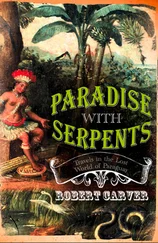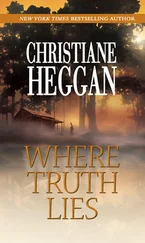I glanced down the list: Alberhill... Chavez... Fitzgerald... Evans... Johnson... Nguyen... Scalfia... Tuvell.
“Thanks, Frances.”
That damned look again.
“Is there anything I can—”
“—I just need some time to think, Terry.”
“Take all you need, Frances. We’ll hold the fort for you.”
When I got back to the Sheriff building, one of my underclass friends was loitering outside, near the steps. I hadn’t seen him for a couple of weeks and had thought of him more than once. His name is Charlie Carter, but a lot of the county employees call him Shopping Carter, because he pushes around a supermarket cart that contains his livelihood. The city of Santa Ana runs off the homeless every once in a while, due to a no-camping ordinance passed not long ago by the city council. They disappear for a few days, then reemerge again, only to be run off again.
Charlie Carter is small and black and worked as a janitor years ago here in Santa Ana until he was shot in the head by a student robber. He’s never been “right” since, and though he gets disability pay, no one knows what he does with it. I’ve wondered if he was pushing his janitor’s cart when he got hit, but I’ve never asked him. I wonder if it might help explain the way he lives now. Charlie pushes his cart in the streets of Santa Ana, weathering storms in whatever shelter or church will have him, plying his trade around the county and city hall buildings downtown. He’s always on the move. He vanishes, then he reappears.
His trade is information. There’s a tattered pasteboard sign that hangs off one side of his cart, announcing “KNOWLEDGE $1 ($4 Deposit).” Neatly arranged in the cart is a clip file of fairly astonishing depth. Charlie gets most of it from the papers and magazines, which he picks up for free when they’re thrown out. He makes the file dividers from cardboard boxes. The last time I talked to him he was saving up for a set of Encyclopaedia Britannica so he could add history to his store of Knowledge. Of course, he’d need a separate cart just for those. We once talked about the difficulty of managing two carts instead of one. But he was adamant at the time. “Without history,” he said, “information’s meaningless.”
I shook his dirty hand and studied his dirty face.
“You’re looking fit, Charlie.”
“I don’ fit. Don’ want to.”
“Still want some encyclopedias?”
“Got a set picked out over at the thrift store on Fourth. Nineteen-eighty-fours, black vinyl, good shape. Comes with the Great Ideas books, all fifty-four volumes. Plato to Freud. Hundred bucks.”
“You’re going to need a double-decker cart for all that.”
“I applied for a vendor’s license from the city. They denied it.”
“Why?”
“They don’ tell you why. Maybe ’cause they think I stole this cart”
“Didn’t you?”
“Found it abandoned, Naughton. I don’ steal things. I’m an educator. How about some knowledge today?”
“I need knowledge today,” I said, which was true. I often buy knowledge from Shopping Carter. Some of it, I’ve actually used.
“What’s the topic?” he asked.
I thought for a second. Charlie doesn’t handle biography, opinion, entertainment reviews or editorials, because he thinks they’re all “meaningless.” Meaningless is one of Shopping Carter’s favorite words. And he doesn’t handle technology because it changes too fast and his cart’s too small to handle it. For some reason, I couldn’t get Frances’s expression out of my mind, or the image of that bright pink envelope that seemed to disturb her so much.
“I want to know about... um... burnout. Occupational burnout.”
“Law enforcement or other?”
“Law enforcement.”
Charlie nodded as he always does, then looked down at his neatly packed cart. “ Time had a decent piece on that just a few months back.”
He ran his dirty hands along the tops of the files, bending them back to read his labels. The late April sunshine bore down on us and I noted his heavy sweaters and filthy pants; his shoes that looked so large; his Angels cap jammed down close to his eyes, touching his sunglasses. I could see the dirt in his hair and smell the odor coming off his clothes. His few personal items were arranged on the bottom level of the cart, where you’d put your case of beer or your economy-size detergent.
He produced the article. It was a photocopied one, which meant that he had sold the original and received in return a clean copy. He likes the copies because they’re uniform in size and arrange easier. They don’t tear as readily. That’s what the $4 deposit is for — when you bring back a fresh copy of your piece, you get your money back, and Charlie gets the good replica. If you don’t come back with a copy, you rob Charlie of some Knowledge and yourself of $4. The title was:
Burnout On The Streets
When Cops Can’t Take It Anymore
“This looks good,” I said.
“It is good.” He studied me through his dark, smudged glasses. I got out my wallet, found a five and gave it to him.
“You gettin’ close to that Horridus yet?”
I considered before I spoke. “Closer.”
“He’ll be on the Web, you know. Pedophiles love talking to each other on the Web.”
“That’s what they say.”
“Help each other out. Trade pictures and stories. Get moral support from other people like themselves. Kind of like a self-esteem workshop.”
“I’d think that was funny if it wasn’t so sick,” I said.
“Fetishes.”
“What’s that, Charlie?”
“Fetishes is where it starts for the pervs. In childhood. They get attached to whatever they’re lookin’ at when their penises feel funny. Then later in life, they’re still attached. That’s why men dig women’s shoes and underwear — see a lot of their mother’s shoes and underwear. Because they’re small and down low when they’re babies, so those things are right in their sight line. Scientific fact, that is. Great piece in Esquire a couple of years back.”
“I’ll take it.”
It was an original, tattered and limp with the years of storage in Shopping Carter’s portable knowledge bin. I got out my wallet for another five, but Charlie waived the deposit.
“You’re good for it,” he said.
“Thanks.”
I read the callout, blocked out in red in the middle of the page:
A FETISH IS A
STORY
MASQUERADING
AS AN OBJECT—
I felt my breath catch and my eyes get sharp. I thought: a little girl enrobed in white netting. A serpent’s scale inserted into the web of the net. The girl. The snake. The web. The net. What is the story here? What is the narrative behind these objects?
I shook Charlie’s hand again and started up the stairs with my new knowledge.
At my work station I checked messages on the phone and computer and called Joe Reilly to see how the clearance was going. He said he had three more sets of prints to compare with the print on the snake scale, and still had to print the woman who had originally found Courtney wandering in the wilderness of Caspers Wilderness Park.
I got out Frances’s list of home sellers and looked it over. For starters, I’d need ages on all twelve of the male sellers. That meant twelve real estate agents to call and convince to release such information to me. Going in person would up my chances of success, but it would take days instead of hours. I called the agents for the first two listings that Frances had starred — Alberhill and Chavez — but the first agent was out of the office, and the second said she couldn’t give out that kind of thing on the phone. Who really would? I thought. Two of the listing agents were from offices close to our building. They were both in, and I made appointments to see them, right away.
Читать дальше
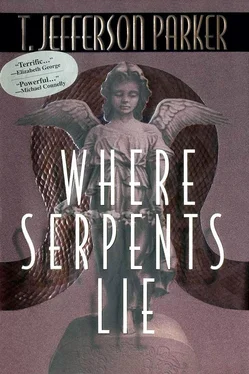


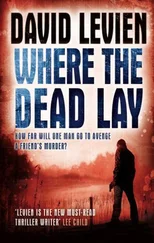
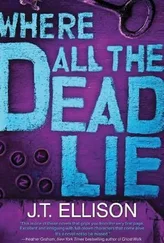

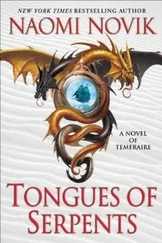

![Джеффри Дивер - Where the Evidence Lies [A Lincoln Rhyme Short Story]](/books/403782/dzheffri-diver-where-the-evidence-lies-a-lincoln-r-thumb.webp)

